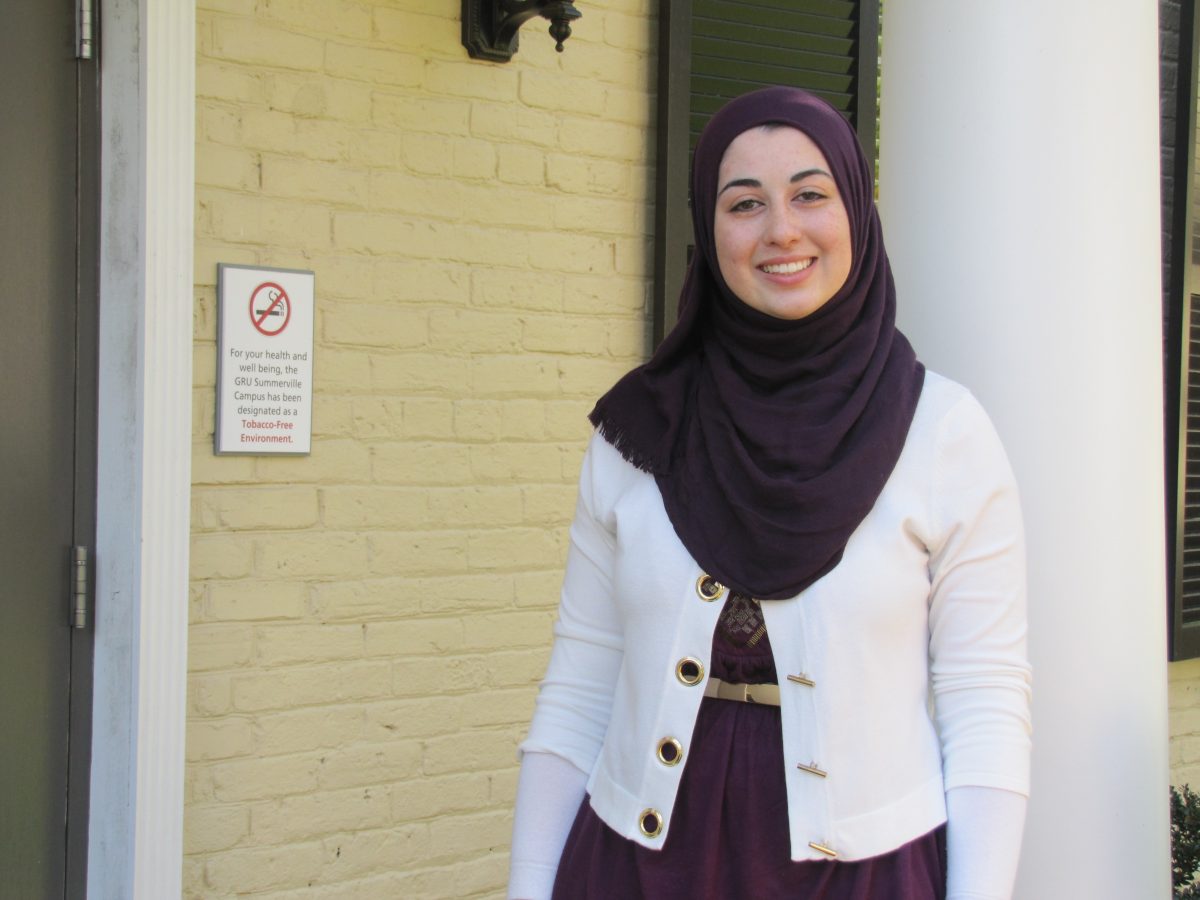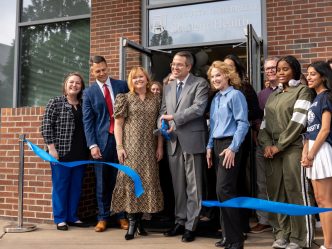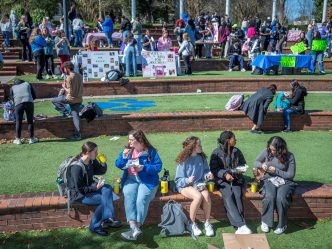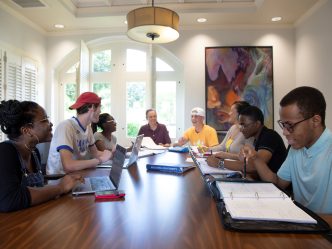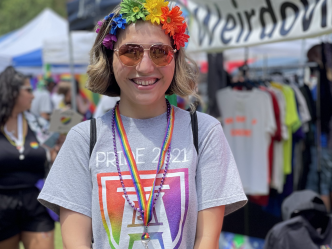At the Georgia Collegiate Honors Council conference in Americus, Georgia, a few weeks ago, nine students from Georgia Regents University presented research in podium presentations, and two, Asma Daoudi and Brittney Laufer, won first prize in their categories.
That means GRU Honors students won two of the three categories at a major state-level conference, which is a big boost for the growing program.
For Daoudi, who finished second overall at the Georgia Undergraduate Research Conference last semester, the win confirms that she’s headed down the right path.
“I guess every student at some point has doubts about whether they should continue doing what they’re doing or look for something else,” she said. “For me, the first conference was the first milestone – I’ll keep moving on – and this conference was confirmation – I’m definitely where I need to be.”
On Thursday, March 19, Daoudi and eight others will be attending the Southern Regionals, and she’s also applied to attend nationals in November.
Daoudi was also elected Student Vice President for the state Honors Council and will help plan for the 2016 state conference, which will be held at the Summerville Campus next February.
“She’s one of our pioneers,” said Dr. Tim Sadenwasser, director of the Honors Program. “She’s working with faculty on the Health Sciences Campus, and I think that’s really important for the success of this consolidation. She’s got a faculty advisor up here and a faculty advisor down there, and everybody’s got to work together on one project.”
In a practical sense, “up here” is the Quad Wall building, which serves as the program’s office as well as a kind of clubhouse for the close-knit group of students, who will gather between classes to relax and often attend lectures and other presentations there.
Honors students take Honors-designated core courses before moving on to interdisciplinary courses like Darwin and the Victorians, the course Sadenwasser, an English professor, is currently co-teaching with Dr. Donna Wear, a professor from the biology department.
“We look at evolutionary science and geological science and look at how the Victorian writers were reacting to all the different things,” he said. “It’s a fun class, and I’m really enjoying being in there. I’m learning a lot about biology and evolution and how it all happens. We have a lot of biology majors, and they’re hearing about how terrifying all this was to a lot of the 19th century writers.”
Usually around their junior year, students will start writing their honors thesis, something not every honors program requires.
“I think to complete a project and see it all the way through to the end is really very strong preparation for them to go to medical school or graduate school or enter into a challenging career,” Sadenwasser said.
Daoudi, who was born in Syria, seems to be leaning toward going to medical school after graduation.
“A lot of people are like, you’re doing research in oral biology, why medical and not dental?” she says. “But I’m one of those people who understands that research is research regardless of what field you’re doing it in. I may be getting that fundamental experience in a field I might not necessarily go into, but I know I’ll know more about it now.”
 Augusta University
Augusta University
